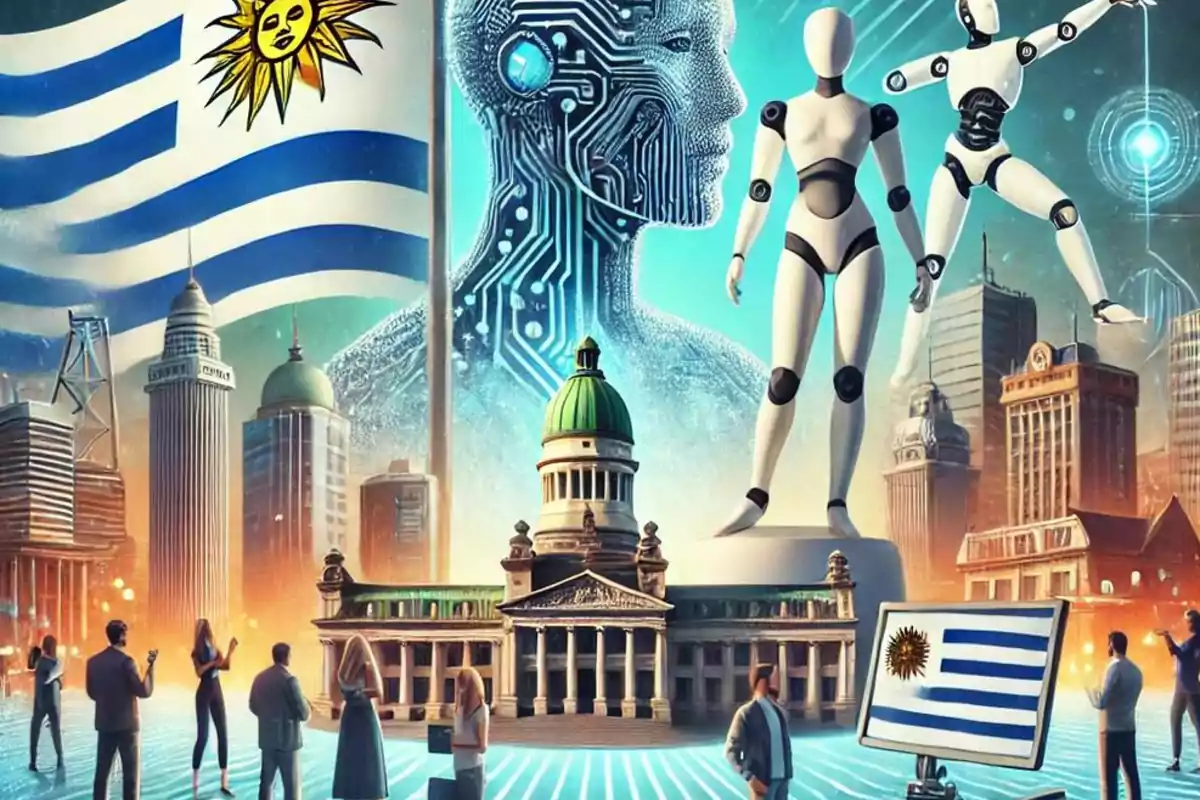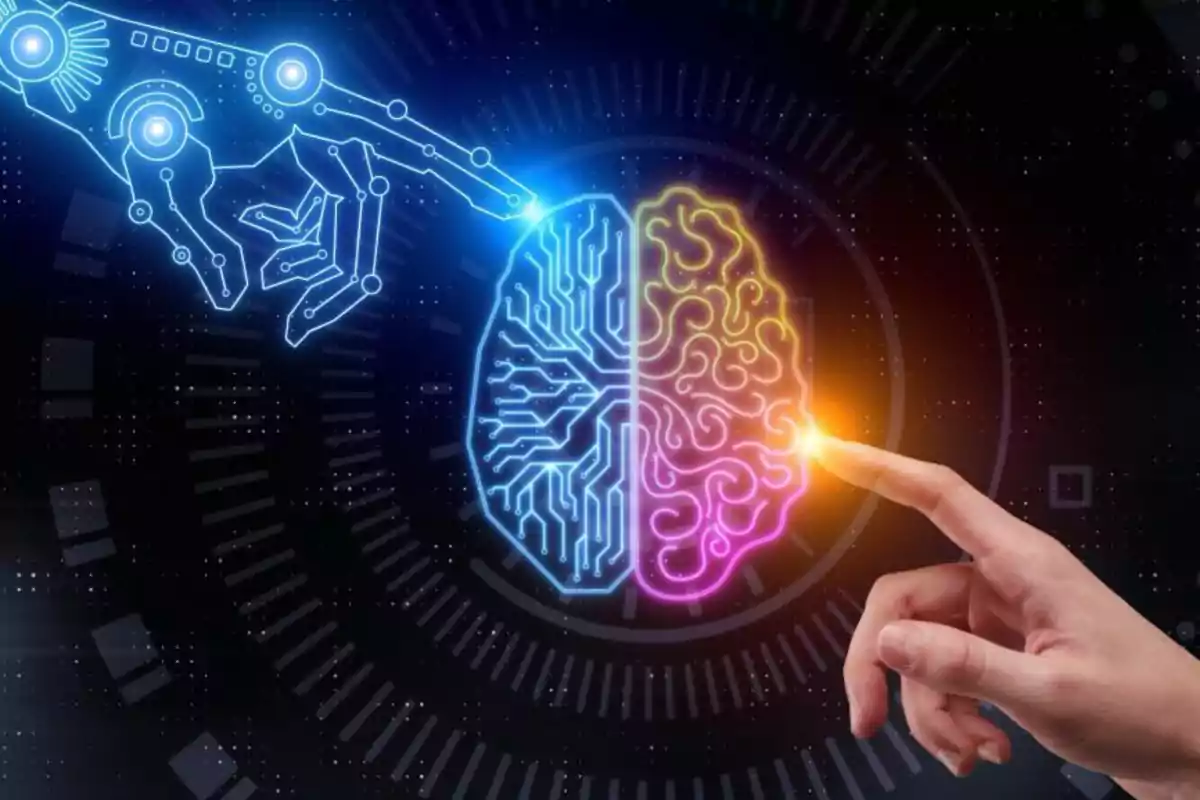
Artificial Intelligence: The Silent Revolution Uruguay Can't Ignore
Why missing the train could be very costly for society
Meanwhile, in a dairy farm in San José, a sensor alerts about a cow with mastitis, in an office of the DGI, an official signs a form that no one will read. Uruguay lives a historical schizophrenia: it has the talent to lead, but the bureaucracy to fail. Artificial intelligence (AI) is not a fad: it's the key to resolving that contradiction and becoming what we always should have been: A small country that thinks big.
Uruguay Moving Forward (Despite the State)
In 2023, while Parliament debated whether to ban facial recognition, a Uruguayan startup called DataFarm was selling agricultural algorithms to Australia.
Meanwhile, ASSE accumulated waiting lists, the Hospital de Clínicas prioritized diabetic retinopathies with AI. Innovative Uruguay doesn't ask for permission: it acts.
The data is compelling:
- US$ 1.6 billion is exported by the technology sector (almost equal to tourism), but it loses 70% of its engineers abroad (BCU, 2023).
- 0.22% of GDP is invested by Uruguay in R&D, compared to 0.53% in Argentina or 0.38% in Chile (ANII, 2023).
It's not a lack of resources: it's a lack of ambition. New Zealand, with a similar GDP, dominates the dairy and agricultural software market. We still believe that selling meat to the EU is an achievement, not a first step.
AI in Deep Uruguay: Less Theory, More Results
In the Uruguayan countryside, where pragmatism rules more than speeches, AI is no longer theory:
- In Cerro Largo, a rice producer uses drones with algorithms to detect pests. He didn't lay off workers: he trained them to interpret thermal maps. Result: +20% yield, same workers, higher wages.
- In Salto, a clinic prioritizes mammograms with AI. Radiologists see twice as many patients, but focused on complex cases.

AI doesn't replace: It enhances.
As a dairy farmer from Florida said while calibrating a sensor on his tractor:
"Those who fear technology should keep counting dung to see if the cows are healthy."
Three Urgent Reforms (Without Demagoguery)
Enough of five-year plans and commissions that only generate expenses. Uruguay needs:
1. Education for the Real World (Not for the Past):
- UTU: "Mechatronics with AI" courses in the interior, where agricultural drones are taught to be repaired, not just engines.
- Return scholarships: Fund master's degrees in data science abroad, in exchange for 5 years working here.
2. Incentives to Attract Investors (Not Laziness):
- 10% IRAE for technology companies (today 25%), with strict audits to avoid local cunning.
- Digital free zones in Artigas and Rivera: 0% taxes for those who hire young people from the interior.
3. Agile State or Useless State:
- Technological Silence Law: If the State doesn't respond within 15 days to a digital procedure, it is approved by default.
- Chatbots in the BPS: To solve 80% of routine inquiries, freeing officials to combat fraud.

The Risks of Believing "Uruguay Comes First"
While Genexus competes with giants like SAP, UTU continues teaching typing. While LATU designs sensors for hydroponic crops, Customs takes 4 months to import an agricultural drone. The danger is not AI: it's the arrogance of believing the world will wait for us.
- Digital divide: 40% of rural students don't have internet. Solution: Public-private partnerships with companies, not more ministries.
- Brain drain: An engineer earns US$ 3,000 here vs. US$ 15,000 in Canada. How long will patience last?
Conclusion: The Uruguay We Deserve
A few weeks ago, at a barbecue in Prado, a 60-year-old rancher from the interior showed me his app to "track cattle weight." "I used to use notebooks —he said—. Now I have this. It's not magic, it's not falling behind."
That is the possible Uruguay: one where a laborer from Tacuarembó operates drones, a doctor from Salto uses AI to save lives, and a public official is a problem solver, not a bureaucrat.
As Carlos Maggi wrote: "Uruguay is a country that resists its own possibility."
AI is that possibility. It's not a top-level: it's the antidote against decline.

The world doesn't wait. While Brazil develops drones for agriculture and Chile attracts digital nomads, here we are still discussing whether BROU should have a cryptocurrency account.
The train has already left: either we get on, or we watch as others write the future.
More posts: